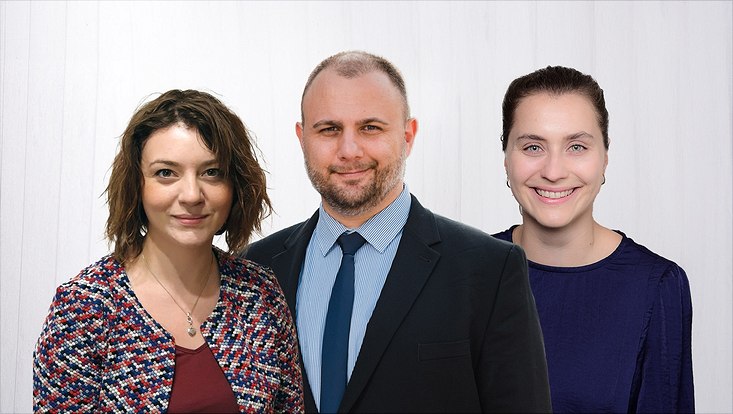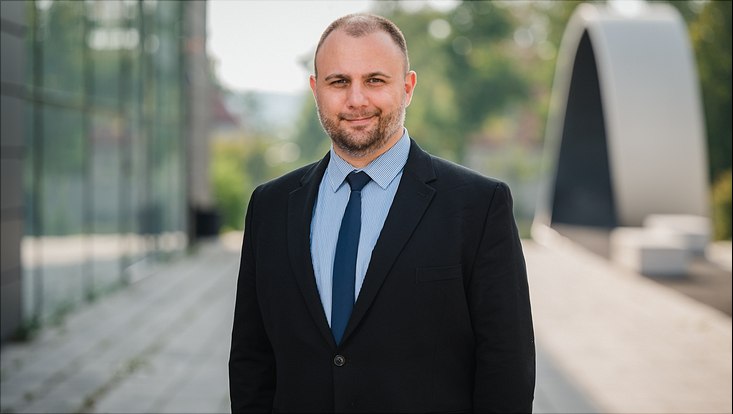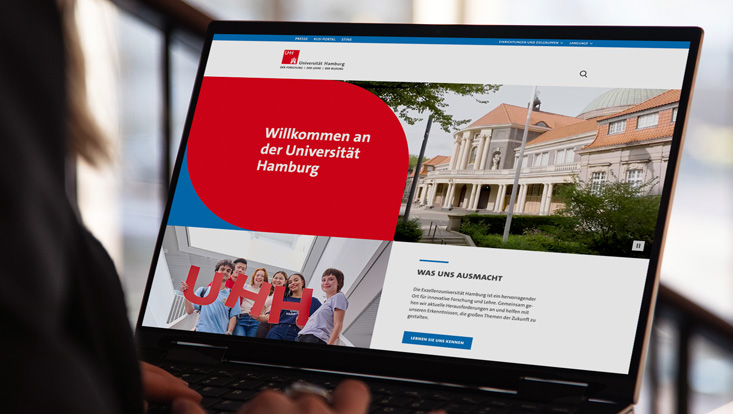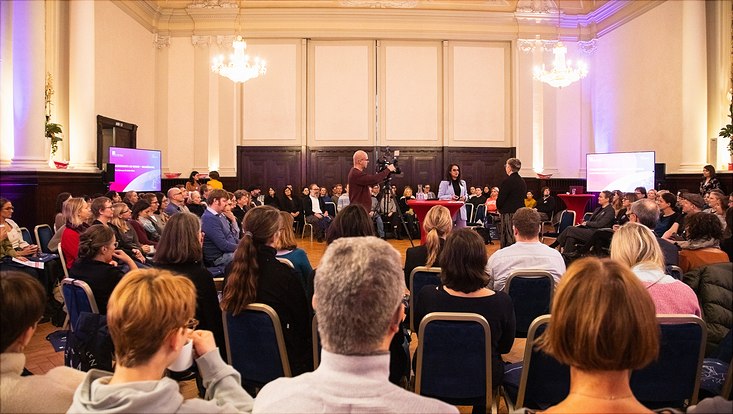After You Get Your Degree— University of Hamburg Alumni on Their Path Towards a Career
8 November 2024, by Lennart Wichmann

Photo: Günther, Kolev, Neubig (University of Hamburg/Engels)
Every year, thousands of students earn their degree here. Hundreds of doctorates are also awarded. And the career options available after that are many and diverse. In this series, alumni from various faculties talk about what they learned at the University of Hamburg and what advice they have for students. This time, 3 alumni of the Faculty of Psychology and Human Movement Science offer their thoughts.
WiSo alumni

- At the University: Master’s degree in journalism and mass communication; after that, traineeship at Deutschlandfunk programs
- Today: Deutschlandradio correspondent for the Federal State of Hamburg
I started working for the Hamburg office of the Federal German Press Agency (dpa) while still a student. Gaining practical experience in media companies early on, whether as a student employee or as a freelancer, makes it much easier to get a foothold in journalism later. Those of you who still have doubts, be aware that most media companies appreciate new external impetus and are searching for young authors from outside the media.
I was accepted for a traineeship at Deutschlandfunk programs before I had completed my master’s degree. So, while moderating my first programs and learning to work to extremely tight deadlines in the editorial office, I was also completing my master’s thesis. This was a major challenge, but I am glad I stayed on the ball in both worlds. My studies in Hamburg definitely provided me with a realistic view of the media business, related jobs and work conditions, so that I was halfway prepared when starting my career.
What I especially like about my work as a federal state correspondent is that it brings me into contact with very interesting people in various ways. I’m reporting on all topics, ranging from politics, business and culture to public debates. But despite my practical work, theoretical questions from my studies are always at the back of my head. Am I really reporting in the best possible manner? Is the audience actually interested in the subject? Do I talk too much about certain groups rather than talk with them?

- At the University: Bachelor’s degree in socioeconomics with a focus on sociology (Bachelor of Arts)
- Today: Revenue management, metronom Eisenbahnverkehrsgesellschaft
I learned from my studies that topics have many facets and that it is well worth exploring other fields. My background in economics, business administration, law, and sociology provided me with a broad foundation of knowledge, which I can build on daily in my profession.
Currently, I’m in charge of analyzing complex data and developing solutions for automatic passenger counting systems. Also, I cooperate with the HVV on revenue-related topics. This position enables me to apply and further develop the skills I acquired during my studies.
Right after graduation, I knew I wanted to continue working for my former employer for a while. There, I was responsible for the implementation, evaluation, and analysis of social science studies. However, as I was already fascinated with mobility issues then, I took the chance to get a fresh perspective on mobility-related topics at another employer. Switching to metronom Eisenbahnverkehrsgesellschaft enabled me to further pursue my interests and broaden my interdisciplinary expertise in a new field.
My advice for current students is: There are many paths through your studies. Pursue your goals and leave room to set priorities. It’s well worth to think outside the box and gain new perspectives.

- At the University: Business administration and economics (Diplom); in 2011, doctorate in economics from the University of Hamburg with Prof. Dr. Elisabeth Allgoewer
- Today: Head of the newly founded Ludwig Erhard Forum für Wirtschaft und Politik in Berlin and professor of economic policy at the Westsächsische Hochschule in Zwickau
To be honest, right after graduating I did not know yet where I was heading professionally. Two things I knew for sure were that I wanted to do a doctorate and was very passionate about economics. Combined, this led to an exciting doctoral studies period at the University of Hamburg, in the course of which I found a special passion for the history of liberal economic thought. With a wink I can say that my studies and doctoral research from 1999 to 2011 in the WiWi Bunker helped me ramp up a certain resilience—nonetheless, I am forever grateful for lecture halls with windows . . .
But seriously, I had a wonderful time and am very proud of having studied in Hamburg. As a professor at Westsächsische Hochschule Zwickau, I still spend much of my time in lecture halls—I find the continuous exchange with students instructive and inspirational. At the same time, in my research and work at the Berlin think tank I try to broaden my knowledge as a student of human affairs.
As an economist I would advise current students to identify and play their comparative advantage card. This means, you should go and find out what your strongest suits and personal preferences are without comparing yourself with others—focus on yourself only! Afterwards, you choose a career that matches your own passion. Today’s generation of students can freely choose and should grab the chance to do so.


